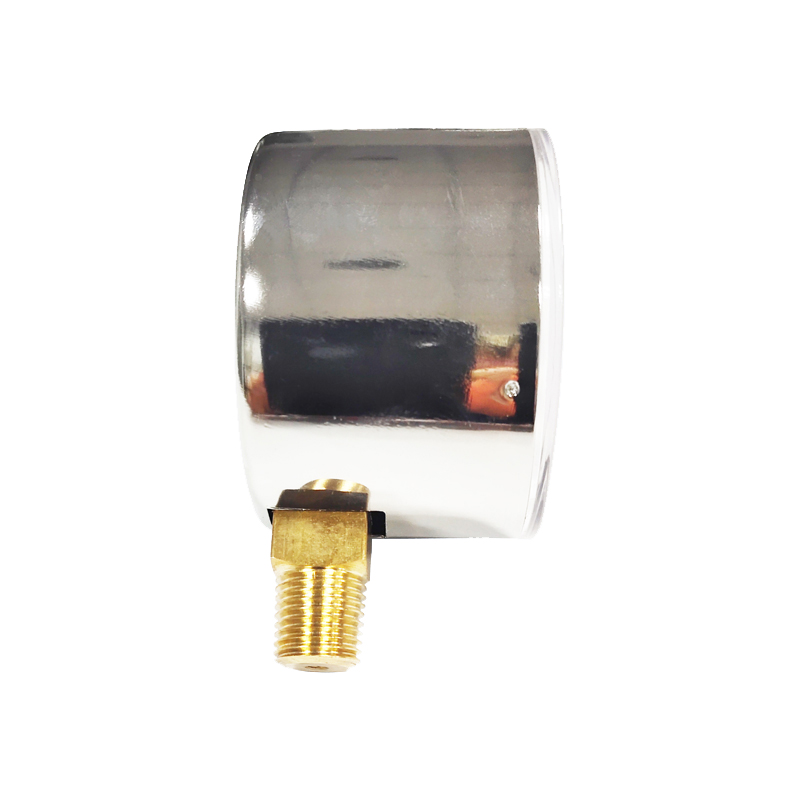
Nov . 27, 2024 14:52 Back to list
Top-Rated Mechanical Differential Pressure Gauges for Accurate Measurements
Understanding the Best Mechanical Differential Pressure Gauge A Comprehensive Guide
In various industrial applications, the measurement of differential pressure is crucial for ensuring operational efficiency, safety, and optimal performance. Among the different instruments available for this purpose, the mechanical differential pressure gauge stands out as a reliable and cost-effective solution. This article delves into the key features, benefits, and selection criteria for the best mechanical differential pressure gauges.
What is a Mechanical Differential Pressure Gauge?
A mechanical differential pressure gauge is a device used to measure the difference in pressure between two points in a system. This type of gauge operates using mechanical components, typically a diaphragm or a Bourdon tube, which translates the pressure differential into a readable figure on the gauge dial. The simplicity of its design means it does not require external power sources, making it suitable for various applications, including HVAC systems, pump performance monitoring, and filtration systems.
Key Features of Mechanical Differential Pressure Gauges
1. Robust Construction Mechanical differential pressure gauges are designed to withstand harsh environments. They are often made of durable materials such as stainless steel or brass, ensuring longevity even in corrosive conditions.
2. Ease of Installation These gauges are relatively easy to install and require minimal maintenance. With straightforward mechanical connections, users can quickly integrate them into their systems.
3. No External Power Required Unlike electronic gauges, mechanical gauges operate independently of power sources. This feature makes them ideal for remote locations or applications where power supply may be unreliable.
4. Analog Readings Most mechanical differential pressure gauges utilize an analog dial for pressure readings. This can make it easier for operators to quickly assess system performance without the need for digital interfaces.
5. Wide Range of Applications These gauges can be used in various applications, from measuring airflow in ducts to monitoring fluid levels in tanks. Their versatility makes them indispensable in several industries, including oil and gas, water treatment, and pharmaceuticals.
Benefits of Using Mechanical Differential Pressure Gauges
- Cost-Effective Compared to electronic alternatives, mechanical gauges are typically more affordable both in initial purchase and maintenance costs.
best mechanical differential pressure gauge

- Simplicity and Reliability Due to their mechanical nature, these gauges tend to be more reliable under specific conditions, particularly where digital gauges may fail due to electrical malfunctions
.- Immediate Feedback The analog display provides immediate visual feedback, allowing operators to make quick decisions based on pressure readings.
- Less Susceptible to Interference Mechanical gauges are less affected by electromagnetic interference, making them suitable for environments with high levels of electrical noise.
Selecting the Best Mechanical Differential Pressure Gauge
When choosing the best mechanical differential pressure gauge for a specific application, several factors should be considered
1. Pressure Range It is crucial to select a gauge that can accurately measure the expected pressure differential in the application.
2. Connection Type Ensure that the gauge’s connection type (such as threaded or flanged) is compatible with your system to prevent leaks and inaccuracies.
3. Dial Size Larger dials can make readings easier to interpret, especially in industrial settings where operators may need to maintain sight of the gauge from a distance.
4. Calibration Look for gauges that require minimal calibration and have clear scalability to ensure easy reading.
5. Environmental Compatibility Consider the environmental conditions (temperature, humidity, potential exposure to chemicals) in which the gauge will operate and ensure it is suited for those conditions.
Conclusion
Mechanical differential pressure gauges are an enduring choice for many industries due to their simplicity, reliability, and cost-effectiveness. By understanding their features and benefits, as well as the factors to consider when selecting a gauge, organizations can effectively monitor pressure differentials in their systems. Whether for routine maintenance or critical applications, these gauges play a vital role in enhancing operational efficiency and safety. Investing in the right mechanical differential pressure gauge will ultimately lead to improved system performance and reduced operational costs.
-
High-Precision 5 Valve Manifold Differential Pressure Gauge Suppliers
NewsApr.29,2025
-
High-Precision Diaphragm Vacuum Pressure Gauges Manufacturers & Quotes
NewsApr.29,2025
-
Omega Differential Pressure Gauges High Accuracy & Durability
NewsApr.28,2025
-
Low Pressure Differential Pressure Gauges Precision Solutions & Quotes
NewsApr.28,2025
-
Digital Diaphragm Pressure Gaauge Precision Measurement & OEM Quotes
NewsApr.28,2025
-
Differential Pressure Gauge China Price High-Accuracy & Best Quotes
NewsApr.28,2025
